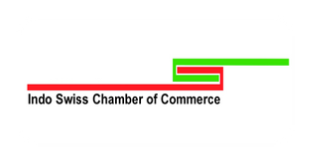SLX has launched Live Master Classes with deeper insights into sustainability, by industry experts. Enroll for the 45-minute session for free!

The certification course offers input from various experts from the industry. The course is validated globally with an industry-validated skills framework.

Do you want your job to be value-oriented? Or would you like your present job to shift focus towards meaning and value? Take this certification course and build what you are looking for!

The certification course will diversify your skillset. This will help you find better work opportunities in better companies!
The sessions will be delivered by world class faculty members with vast experience in the field of education and sustainability.
Our Certifications will help you integrate sustainable development processes and practices with ease into your deliverables & activities.
Our certification courses have comprehensive reference material on Sustainability, ESG, and many related topics.




Did you know that there are about 20,000 varieties of bees all across the world?
While all of them aren’t under threat of extinction, many of them are considered an endangered species. But why are bees so important?
Bees are a keystone species – which means that they are one of several species essential for the functioning of our entire ecosystem. From providing food to helping propagate plant and animal life, they help sustain food chains on all continents except Antarctica.
On World Bee Day, let’s explore what would happen if the bees in the world died out:
No products from bees
We’ve all used honey- whether as a replacement for sugar in our daily tea or as an ingredient in a homemade face pack. However, honey is only produced by one type of bee – honeybees. Bees, as a whole, also produce beeswax, royal jelly, propolis, and bee venom, which are used by humans for various purposes. Beeswax has numerous uses, from being used in candles, cosmetics, and as a binding agent in the pharmaceutical industry. Royal jelly, propolis, and bee venom are used to treat various physical ailments and are also used to fight infections, heal wounds and reduce inflammations.
Fewer plants and trees
We know that sunlight and water are the main components to make plants grow – but birds and insects help them pollinate. Some foods, such as rice, wheat, and corn, can pollinate on their own. However, most other plants need to be pollinated by birds and insects to spread. Bees are excellent pollinators, especially because they tend to feed on specific plants at a time – which gives them a higher chance of pollinating plants. Many food items essential for our healthy living, including blueberries, almonds, coffee, and coconuts (among many others), almost exclusively depend on bees for their pollination.
Without bees, however, this would stop, or at the very least, be much slower. With fewer plants and trees being pollinated, many fruits, vegetables and nuts would become much more expensive and would affect human nutrition on a large scale. Fewer trees would also affect thousands of birds, animals and reptiles, many of whom live in and around them.
Animal products will become more expensive
Since fewer bees mean fewer plants, animals might also have less to eat. This could reduce their rate of breeding and create malnutrition in them. Since humans tend to eat both plant-based and animal-based diets, this could affect us. Meat from animals such as sheep and goats could become more expensive (and less nutritious), and so could dairy products such as milk, cheese and butter.
As we can see, these tiny creatures can do so much for human survival and comfort. Small things, such as taking care while removing beehives in your home or avoiding certain insecticides in your garden, can help us conserve them. You can also try shopping for sustainable honey, which is usually made by farms that prioritise the local bee population. On World Bee Day, let’s aim to bee informed and do our bit to help them thrive!